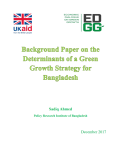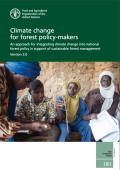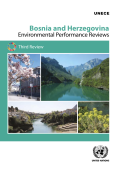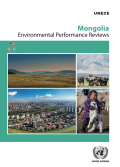
Bangladesh has made important progress in a number of areas relating to environmental management but this has not matched the progress with the growth and poverty reduction agenda. Importantly Bangladesh is yet to adopt formally a “green growth strategy” that fully reconciles the development agenda with the protection of the environment. In the absence of the green growth strategy and associated regulations, policies and institutions, the costs of environmental degradation have grown over time. Additionally, the adverse effects of climate change are mounting and creating substantial downside risks and vulnerabilities. Against the backdrop of this, the government’s preparation of Vision 2041 under which Bangladesh is envisaged to reach World Bank-defined high income threshold by FY2041 and eliminate absolute poverty provides an important opportunity to take a fresh look at the environmental degradation and climate change risks.



